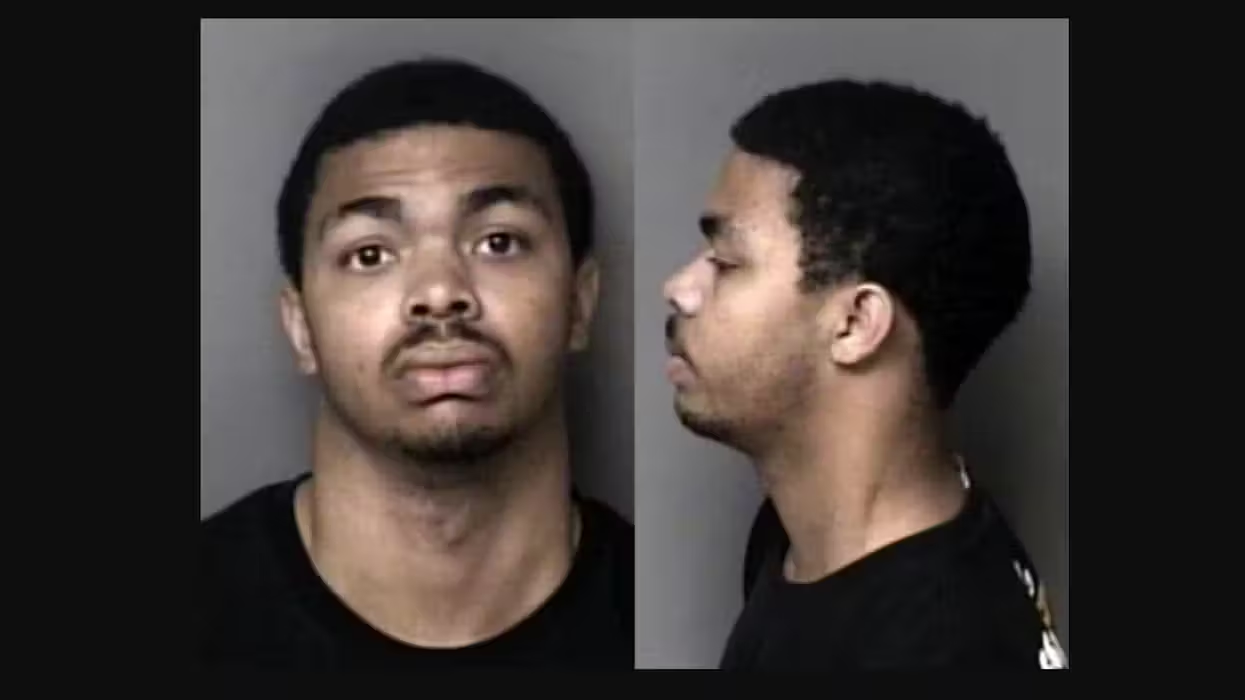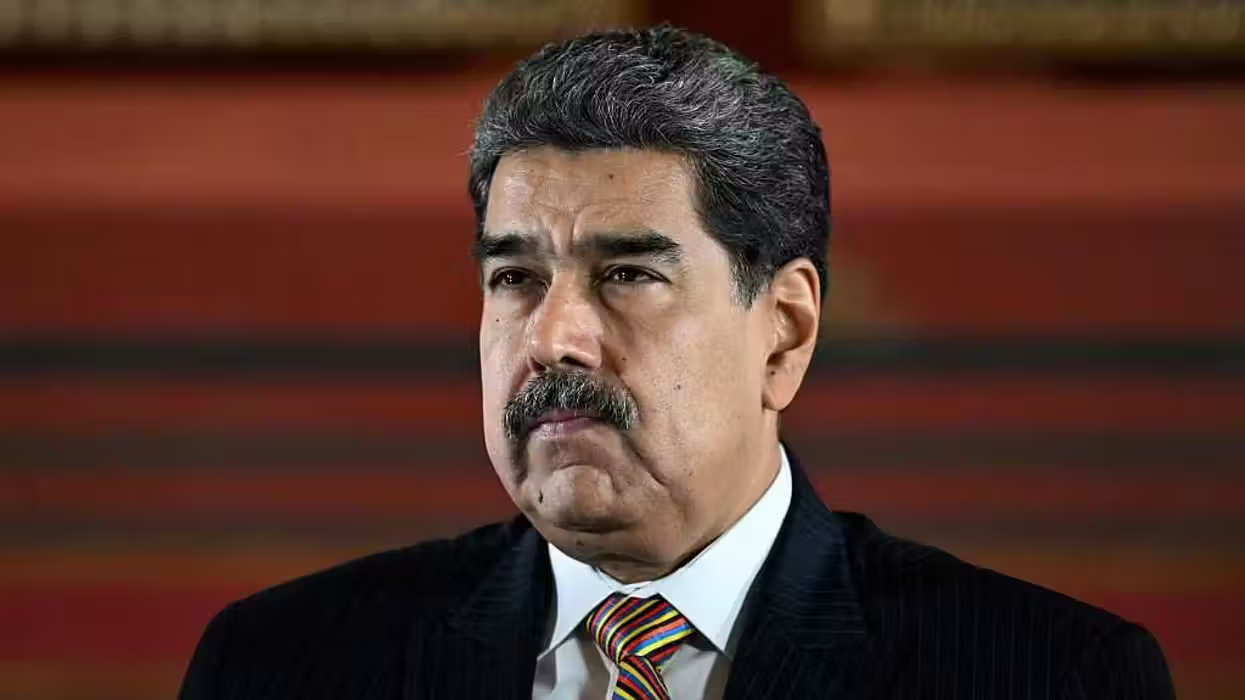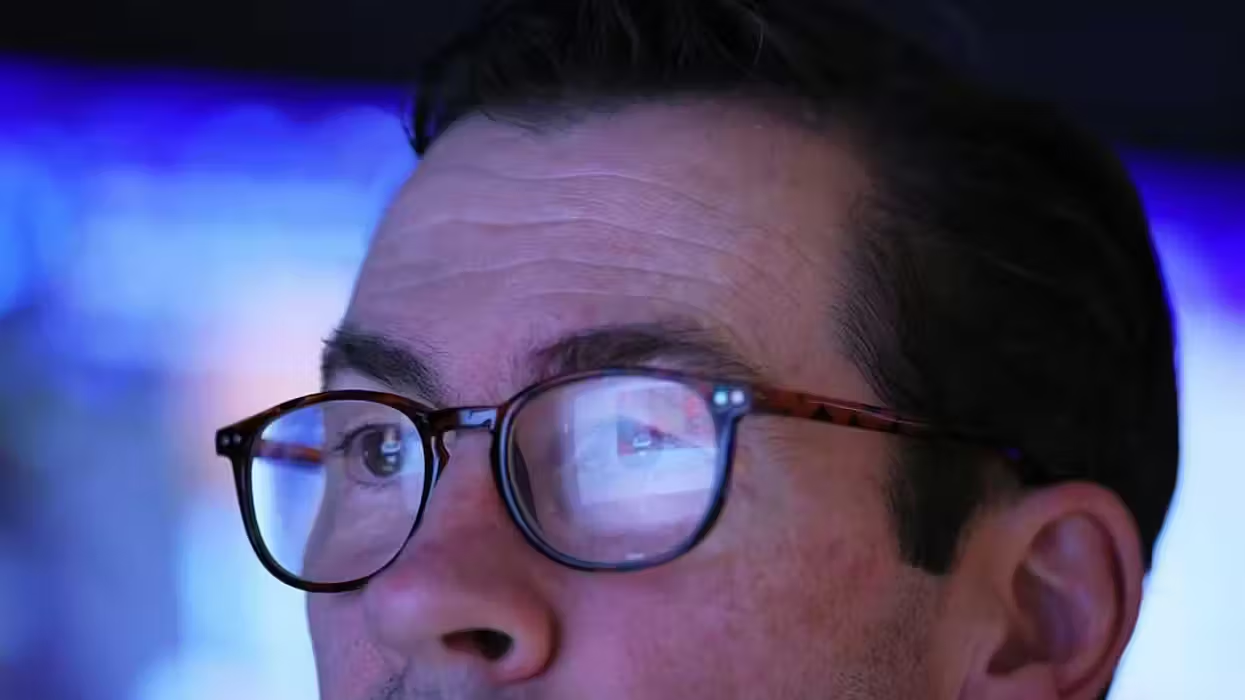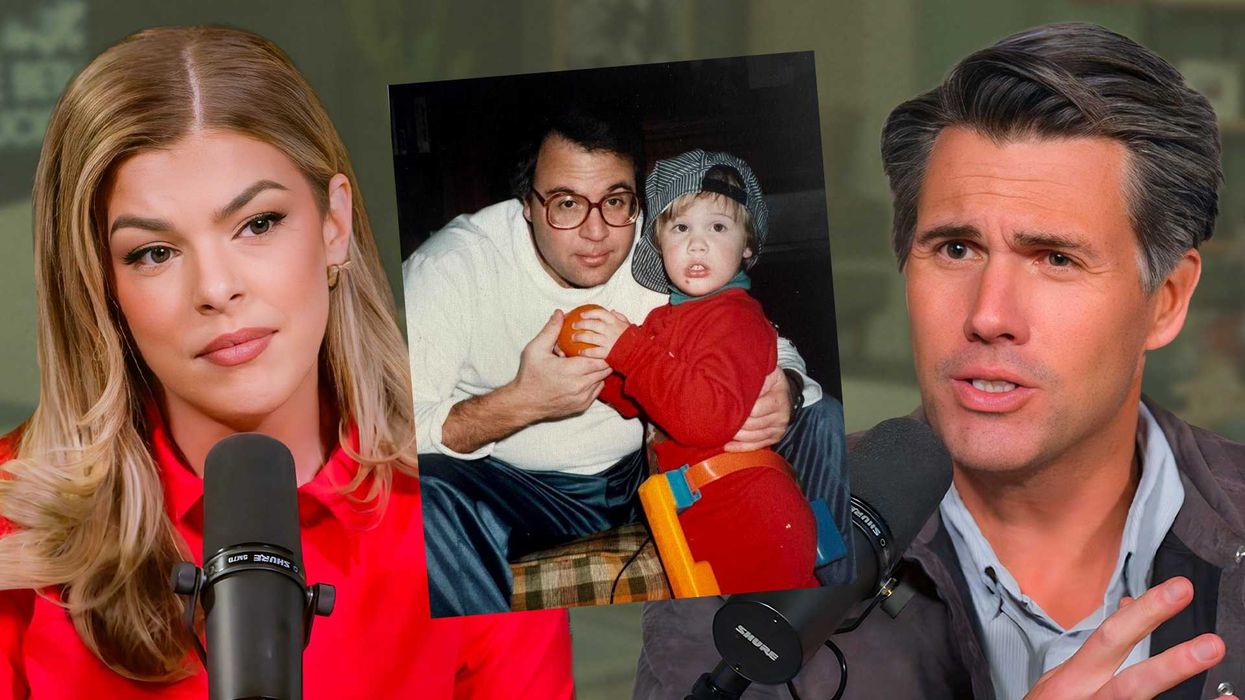
© 2026 Blaze Media LLC. All rights reserved.
Meet the 'Pulpit Genius' Who Has Had a Revolutionary Impact on Christian Preaching
November 29, 2011
"He does not tell us what he is going to tell us, and then tell us what he told us."

Dr. Fred Craddock's story is an intriguing one. The preacher's childhood, which was characterized by poverty, an alcoholic father and other personal hurdles hurdles, actually helped to mold him into one of the most influential preachers of our time.
Unlike other well-known preachers, Craddock, who has been described as a "pulpit genius," was never intent on building a mega-brand. In fact, the preacher doesn't have an e-mail address, doesn't use a computer and would never dream of taking to Facebook or Twitter to spread his messages.
Craddock's sole focus has been on teaching through storytelling. He has traveled the world, instructed at Emory University and inspired a generation of preachers. While he may not be a household name, Newsweek Magazine ranked him among the most influential pastors in America. Known for his unique story-telling, the preacher has provided a very different, less stale methodology for Christian pastors to partake in across the globe.
Watch Craddock talk about what goes into a good sermon, below:
His father, Fred Craddock Sr., was a complicated figure who likely played a substantial role in his son's decision to go into the ministry. The elder Craddock loved to tell stories, which had a major impact on his son. CNN reports:
His son and namesake, Fred Jr., was one of his most devoted fans. Father and son developed a storytelling ritual. At the end of the day, the elder Craddock would return to his home in the small town of Humboldt, Tennessee, roll a Bull Durham cigarette by the fireplace and say to no one in particular, "Boy, I never hope to see what I saw today."
The younger Craddock would sit with the other children in his family and listen anxiously to the stories. It had become a family tradition.
Below, watch the younger Craddock offer a short Bible study blessing back in 2008:
But as time went on, his father's alcoholism took a toll. The family was poor, living with very little. In the end, though his mother's faith stayed strong, Craddock's father refused to go to church. It was this dynamic, which never corrected itself, that had a deep impact on the preacher's pathway in life.
This path, which he believes was set early on, has an intriguing story behind it. Craddock's inevitable entrance into full-time ministry, some believe, resulted from a miracle that had occurred years before. When Craddock was 8-months-old, he was gravely ill.
On a winter night in 1928, his mother, Ethel, was so distraught over her son's diphtheria, an infectious disease that leads to blockages in the lungs, that she fled to the family's barn to pray.
The baby could barely breathe and doctors couldn't do much to help him. So, she prayed, "Dear God, if you will let him live, I will pray every day that he will serve you as a minister."
She fell asleep in the barn and awoke on the hay the next morning. She ran to the house to find, to her surprise, that her son would be okay. The infection had left him and so she held on to her pledge to God, not telling her son about it until he turned 17. The secret was withheld, because she didn't want her son to enter the ministry with the wrong motivations.
Below, hear Craddock discuss the fact that his mother withheld her desire for him to enter the ministry until his teen years:
After entering college, he decided to see a counselor to ensure that his calling to the ministry was genuine. Unfortunately, he was given some troubling advice. Upon hearing about his childhood and his father's troubles, the counselor said, "I think I'm clear why you're in the ministry: to redeem your father." His hope -- that he was entering the ministry for the right reasons -- was dashed.
These words hit Craddock hard -- so hard that he left the ministry and began taking on odd jobs. "It crushed me. I didn't have a Plan B in my life. I was kicking the can down the road every night, trying to figure it out," he explains.
But one day he found himself reading the book of Philippians in the Bible. As he read about Paul's plight, he realized that the motivation to reach souls for Christ didn't really matter. In the end, he recognized that what mattered most was that Jesus' name was being proclaimed. So, whether his motivation was to redeem his father or to save others' souls, it didn't necessarily matter.
He decided to jump back into ministry, so he returned to school and he began preaching at rural churches. What came to follow was a Craddock-inspired revolution regarding the way in which pastors preach the gospel to their followers.
After getting back into the ministry, Craddock noticed that people were much more responsive to his informal talks than they were to his very structured sermons. So, he started to experiment. Rather than placing his sermon into a solid structure, he bagan to model his talk like extended conversation. In this latter form, the listener would be challenged to give meaning to the sermon. CNN has more:
Craddock never took to preachers who tried to bulldoze people into converting. He had seen plenty of preachers try to goad his father back to church. And his mother, by withholding the story of his near-death experience, had taught him that people's faith decisions must be genuine, not coerced.So Craddock became a preacher who didn't preach. He once said that a "yes" is no good unless a "no" is possible.
Rev. Barbara Brown Taylor, one of Craddock's students, describes his peaching style as follows:
"He assumes from the start that we are capable of attending to the text, handling some scholarship, dealing with open-ended stories, and drawing our own conclusions. He does not tell us what he is going to tell us, and then tell us what he told us. He sits down before we are ready. He lets us chew our own food."
Today, Craddock is 83-years-old. He gave his last official sermon in October, as he is suffering from Parkinson's Disease. His impact on preaching, though, has revolutionized the way in which pastors communicate. His background, which certainly had its challenges, helped to make this impact and its associated results possible.
(H/T: CNN)
Want to leave a tip?
We answer to you. Help keep our content free of advertisers and big tech censorship by leaving a tip today.
Want to join the conversation?
Already a subscriber?
Billy Hallowell is a digital TV host and interviewer for Faithwire and CBN News and the co-host of CBN’s "Quick Start Podcast."
Billy Hallowell
Billy Hallowell is a digital TV host and interviewer for Faithwire and CBN News and the co-host of CBN’s "Quick Start Podcast."
more stories
Sign up for the Blaze newsletter
By signing up, you agree to our Privacy Policy and Terms of Use, and agree to receive content that may sometimes include advertisements. You may opt out at any time.
Related Content
© 2026 Blaze Media LLC. All rights reserved.
Get the stories that matter most delivered directly to your inbox.
By signing up, you agree to our Privacy Policy and Terms of Use, and agree to receive content that may sometimes include advertisements. You may opt out at any time.






